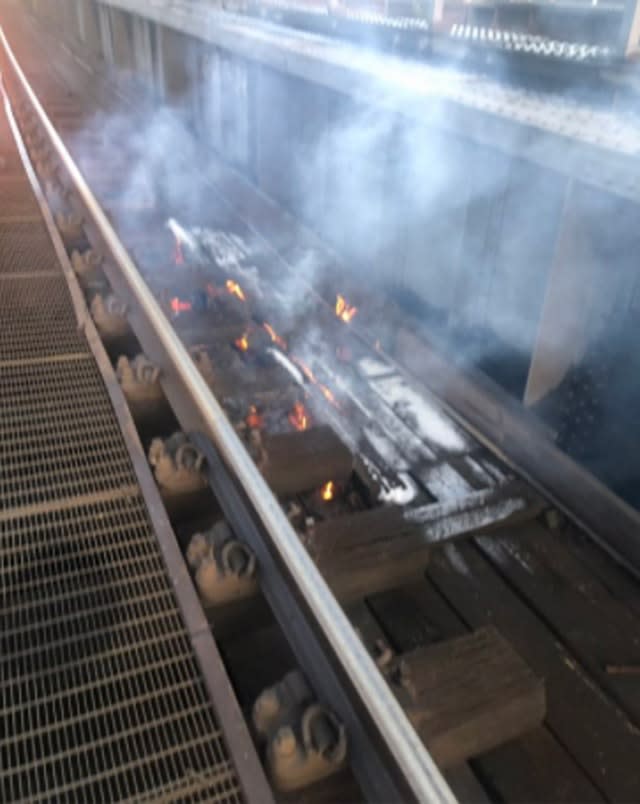British Airways fixes IT glitch which saw more than 100 flights axed
An IT glitch which caused the cancellation of more than 100 British Airways flights has been fixed but disruption could continue on Thursday, the airline said.
Tens of thousands of passengers attempting to travel to or from Heathrow, Gatwick or London City were affected by the problem on Wednesday.
Some 117 flights due to depart or arrive at Heathrow were axed.
BA could face a compensation bill in excess of £8 million if all those affected claim what they are entitled to under European Union rules.
The airline said in a statement on Wednesday night: “We have resolved the temporary systems issue from earlier today and apologised to customers who were affected.
“Any customers whose flights have been cancelled have either been rebooked or offered a refund.
“We plan to operate our normal schedule tomorrow, however there may be some knock-on disruption.
“We continue to ask customers to check ba.com before heading to the airport to get the latest status of their flight.”
The airline earlier said it appreciated “how frustrating their (customers’) experience has been” and said teams worked “tirelessly to get the vast majority” on their way.
There were long queues of passengers at Heathrow and error messages on the BA app as some services lagged more than five hours behind schedule.
@British_Airways @BBCNews – here we go again! Chaos! This is only half of one queue! My flight cancelled as are 100’s of others. I had checked-in so need my bag back – others told as checked-in can’t leave T5 without checking out! Happy 100th anniversary #BA pic.twitter.com/xr0DRUieQh
— Darren Rowe (@djrowe149) August 7, 2019
The airline was forced to use back-up and manual systems in a bid to cope with the problem.
Darren Rowe, from the Cotswolds, said his 10.20am flight to Hamburg from Heathrow for business meetings was cancelled before “all chaos let loose”.
He said: “There were massive queues, it was queue here, queue there, nobody was saying anything. The lack of information was just pathetic.
“You’ve got young families in that queue, people going to weddings, birthdays, on business. They could have had somebody come around with water updating people about what was going on.”
BA’s IT problems come after it suffered a major computer failure over the spring bank holiday weekend in May 2017, stranding tens of thousands of passengers and costing owner AIG around £80 million.
On that occasion, the airline cancelled 726 flights due to a power failure, sparking a raft of compensation claims for flight costs, train and hotel expenses, replacement clothes and toiletries.
BA, which has recently faced threatened strikes by pilots, is also set to be fined £183 million over a cyber attack on its security systems last year in which the personal data of up to 500,000 customers was stolen.
On Wednesday, holidaymakers faced a struggle even getting to Gatwick due to a trackside fire which blocked all lines between Victoria and Clapham Junction.
Gatwick Express services were suspended and Southern trains were severely disrupted.
Truly appalling service #gatwickexpress. After first train returns due to fire on track – everyone loaded onto another which is then cancelled 20 minutes later. Hopeless rude staff. #missedflight #missedconnections
— Tim Willcox (@BBCTimWillcox) August 7, 2019
Tim Willcox said passengers were “seething” as he endured a “nightmare” start to a planned short break in Nice, France, with his wife Najah.
The BBC presenter was stranded on the 5.30am Gatwick Express for 20 minutes outside Victoria, put on another train which was also cancelled, and, as a result, missed his 7.25am flight.
He told PA: “Most flights are now either fully booked or have shot up in price or involve stopovers.
“I’m now on a bus. It’s just proving a bloody nightmare. I can’t afford to spend £1,000 on two flights.
“We’ve got car hire waiting, a hotel booked. We’re now looking at flying to Paris and then flying from Paris to Nice.
“There was a complete lack of communication from Gatwick Express, there was a very rude staff member who just wouldn’t answer questions. People were seething.”

Stephen MacCallaugh, general manager for Gatwick Express, said: “We apologise to everyone caught up in this morning’s disruption.
“We strive to give passengers excellent service and quality information. The lineside fire had only just been reported at the time Mr Willcox was travelling, indeed he was probably on the first train that encountered it.
“It was only after Network Rail investigated and then closed all four tracks that we could re-plan our services and update passengers with accurate information.”

 Yahoo News
Yahoo News 
